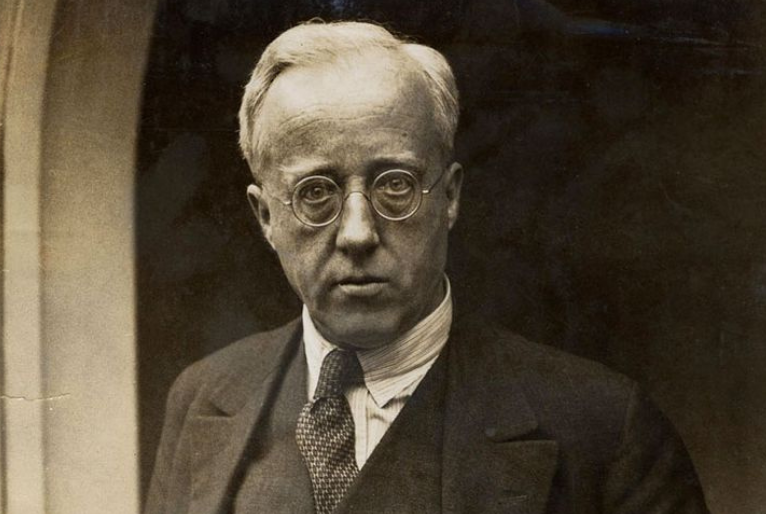Gustav Holst, an eminent English composer of the early 20th century, left an indelible mark on the world of classical music. Renowned for his innovative orchestration, intricate harmonies, and profound musical concepts, Holst's compositions continue to captivate audiences to this day. Join us on a journey through the symphonic wonders of this musical genius as we explore his 10 best compositions.
Gustav Holst - I Vow Thee My Country
"I Vow to Thee, My Country" is a British patriotic hymn,[1] created in 1921, when a poem by Sir Cecil Spring Rice was set to music by Gustav Holst.
The origin of the hymn's text is a poem by diplomat Sir Cecil Spring Rice, written in 1908 or 1912, entitled "Urbs Dei" ("The City of God") or "The Two Fatherlands". The poem described how a Christian owes his loyalties to both his homeland and the heavenly kingdom.
In 1908, Spring Rice was posted to the British Embassy in Stockholm. In 1912, he was appointed as Ambassador to the United States of America, where he influenced the administration of Woodrow Wilson to abandon neutrality and join Britain in the war against Germany. After the United States entered the war, he was recalled to Britain. Shortly before his departure from the US in January 1918, he re-wrote and renamed "Urbs Dei", significantly altering the first verse to concentrate on the themes of love and sacrifice rather than "the noise of battle" and "the thunder of her guns", creating a more sombre tone in view of the dreadful loss of life suffered in the Great War. The first verse in both versions invoke Britain (in the 1912 version, anthropomorphised as Britannia with sword and shield; in the second version, simply called "my country"); the second verse, the Kingdom of Heaven.
According to Sir Cecil's granddaughter, the rewritten verse of 1918 was never intended to appear alongside the first verse of the original poem but was replacing it; the original first verse is nevertheless sometimes known as the "rarely sung middle verse".The text of the original poem was sent by Spring Rice to William Jennings Bryan in a letter shortly before his death in February 1918.
The poem circulated privately for a few years until it was set to music by Holst, to a tune he adapted from his Jupiter to fit the words of the poem. It was performed as a unison song with orchestra in the early 1920s, and it was finally published as a hymn in 1925/6 in the Songs of Praise hymnal (no. 188).
For more:
http://www.melhoresmusicasclassicas.blogspot.com
Gustav Theodore Holst (born Gustavus Theodore von Holst; 21 September 1874 – 25 May 1934) was an English composer, arranger and teacher. Best known for his orchestral suite The Planets, he composed a large number of other works across a range of genres, although none achieved comparable success. His distinctive compositional style was the product of many influences, Richard Wagner and Richard Strauss being most crucial early in his development. The subsequent inspiration of the English folksong revival of the early 20th century, and the example of such rising modern composers as Maurice Ravel, led Holst to develop and refine an individual style.
There were professional musicians in the previous three generations of Holst's family and it was clear from his early years that he would follow the same calling. He hoped to become a pianist, but was prevented by neuritis in his right arm. Despite his father's reservations, he pursued a career as a composer, studying at the Royal College of Music under Charles Villiers Stanford. Unable to support himself by his compositions, he played the trombone professionally and later became a teacher—a great one, according to his colleague Ralph Vaughan Williams. Among other teaching activities he built up a strong tradition of performance at Morley College, where he served as musical director from 1907 until 1924, and pioneered music education for women at St Paul's Girls' School, where he taught from 1905 until his death in 1934. He was the founder of a series of Whitsun music festivals, which ran from 1916 for the remainder of his life.
Holst's works were played frequently in the early years of the 20th century, but it was not until the international success of The Planets in the years immediately after the First World War that he became a well-known figure. A shy man, he did not welcome this fame, and preferred to be left in peace to compose and teach. In his later years his uncompromising, personal style of composition struck many music lovers as too austere, and his brief popularity declined. Nevertheless, he was a significant influence on a number of younger English composers, including Edmund Rubbra, Michael Tippett and Benjamin Britten. Apart from The Planets and a handful of other works, his music was generally neglected until the 1980s, when recordings of much of his output became available.
Gustav Holst
Tracklist:
1. Marte, O Mensageiro Da Guerra
2. Vênus, A Mensageira Da Paz
3. Mercúrio, O Mensageiro Alado
4. Júpiter, O Mensageiro Da Alegria
5. Saturno, O Mensageiro Da Velhice
6. Urano, O Mágico
7. Netuno, O Místico
8. Egdon Heath, Opus 47*
9. Hammersmith, Opus 52*
For more:
http://www.melhoresmusicasclassicas.blogspot.com
#MusicHistory
#ClassicalMusic
#Holst


